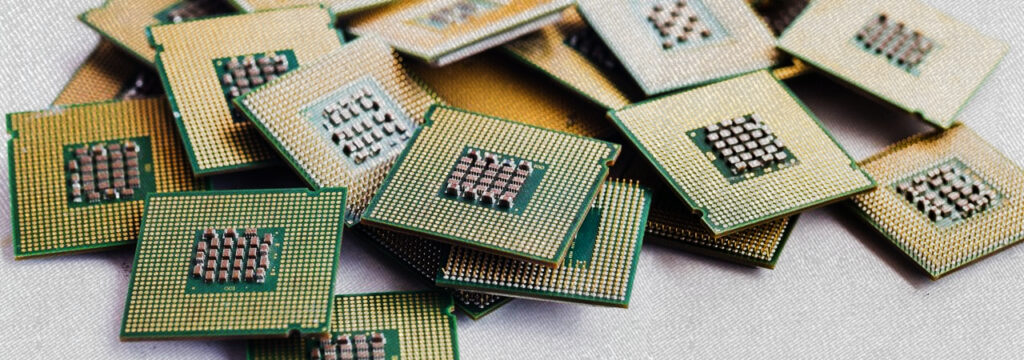The technological development of the last decades has brought with it new strategic assets that not so long ago were non-existent. To goods such as oil, weapons, drugs or infrastructure1, the semiconductor industry and the manufacture of chips would now be added. Why is this new industry so important geopolitical and economic and what is its role in the technological war between China and the United States?
To understand its importance it is necessary to explain some characteristics of semiconductors. A semiconductor is a material that depending on certain factors can behave both as a conductor, allowing the passage of electricity and as an insulator preventing the passage of electricity. Silicon is the most widely used semiconductor and it is used in the manufacture of integrated circuits for all existing electronic devices. Due to the increasing complexity of technology the production chain has become specialized with four main types of companies: integrated device manufacturers (IDM),fablesthat only design new chips but hire others to produce them and foundries that focus solely on production and outsourced assembly and test (OSAT) services that provide assembly, packaging and testing services2.
The relocation of production is another of the characteristics of the supply chain of this industry, so that no country absolutely controls the entire production. At present in Asia, (mainly in Taiwan) most of the physical production of the chips is carried out. This has ended up posing a potential danger for countries like the United States that depend on foreign production to satisfy their demand including arms production and their national security. Therefore the specialization in the production chain has translated into a geopolitical risk.
With this in mind one can better understand howTaiwan has prohibited Taiwanese companies from recruiting staff in Chinato prevent this country from stealing employees to build its own self-sufficient supply chain3, or how the United States tries to protect Taiwan from possible invasion and China seizes the island by force4. Since 2015 both the US and China have worked in parallel to develop their own semiconductor industry. However everything indicates that the West is in the saga in an activity led by Asian countries.
Control of the technology industry will be achieved by the country that is able to replicate the complete semiconductor production chain in a self-sufficient way. Taiwan and the TSMC company have become an object of struggle in this power battle between the US and China5. The chip market expresses one more dispute, such as renewables and telecommunications, in the battle for global economic control.
1 https://www.un.org/Depts/ptd/sites/www.un.org.Depts.ptd/files/files/attachment/page/pdf/strategic_commodities.pdf 2 https://www.semiconductors.org/strengthening-the-global-semiconductor-supply-chain-in-an-uncertain-era/ 3 https://www.xataka.com/componentes/guerra-semiconductores-se-encrudece-taiwan-prohibe-reclutar-personal-china-para-evitar-caza-talento 4 https://www.lavanguardia.com/internacional/20210504/7425431/taiwan-lugar-mas-peligroso-planeta.html 5 https://www.businessinsider.es/tsmc-tensiones-comerciales-podrian-interrumpir-suministro-849489
Become Interest:
